6 Plants That Keep Raccoons Out of Your Yard
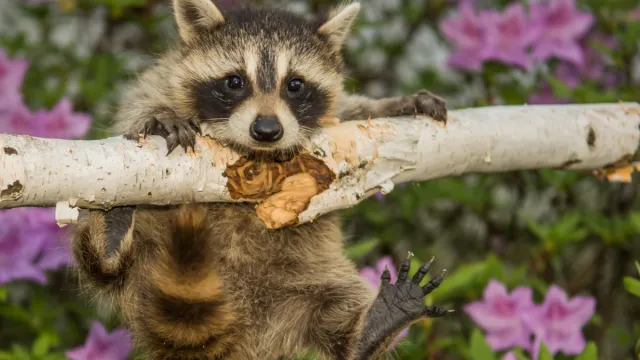
Raccoons come into your yard for one thing: food. And if you have a garden, they’re even more likely to stop by for a snack. “They have a very strong sense of smell, which they use to find food sources, [and] we can take advantage of this feature by planting foods they hate,” says Jim McHale, president of JP McHale Pest Management. And since these critters can carry a plethora of diseases, it’s even more important to keep them out of your space. Read on to hear from McHale and other pest experts about the best raccoon-repellent plants.
RELATED: 6 Plants That Keep Deer Out of Your Yard, According to Experts.
6 Raccoon-Repellent Plants
1. Hot peppers
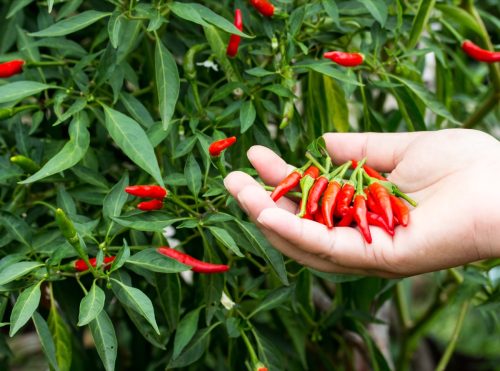
One of the easiest ways to deter raccoons is by planting hot peppers. Black pepper and cayenne plants can also do the trick.
“Raccoons can’t stand the scent or taste of capsicum, which is found in hot peppers,” says Bryan Clayton, CEO of GreenPal. If you plant them right near the entryway of your garden, you’re less likely to encounter raccoons.
If you don’t want to have these actual plants, Ward Dilmore, founder and head landscape designer at Petrus Landscaping, says you can also use hot pepper sprays on other plants or scatter crushed red pepper flakes throughout the lawn or spots where there is more raccoon activity.
RELATED: 5 Plants That Keep Geese Out of Your Yard, According to Experts.
2. Garlic and onions
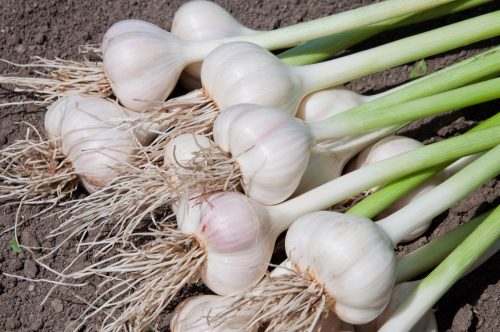
Garlic and onions, in a class known as alliums, are also pretty unappealing to raccoons and can help deter them from eating the rest of your plants, says McHale.
Clayton and Dilmore both mention that the smell of these plants is too pungent for raccoons. Garlic has an especially strong scent, so as soon as raccoons get a whiff, they’ll be going in the other direction.
As a plus, garlic is a low-maintenance plant, so you don’t have to worry about constant upkeep, Clayton tells Best Life.
RELATED: 8 Indoor Plants That Keep Bugs Away, According to Experts.
3. Globe thistles
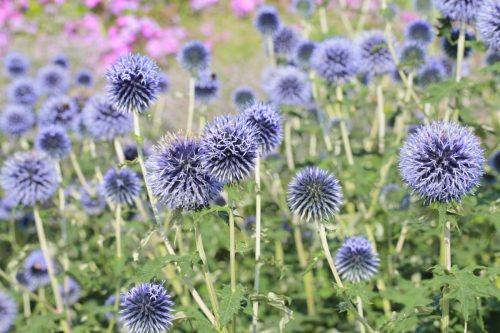
In addition to strongly scented plants, raccoons tend to have an aversion to those with funky textures or thorns, as they don’t want to risk getting hurt. A great example is glove thistles.
“To effectively ward off raccoons, it is recommended that you plant these plants throughout your landscape, paying special attention to areas that may be attractive to raccoons, such as garden beds containing sweet corn or strawberries,” says Alex Kantor, owner at Perfect Plants Nursery.
RELATED: 5 Plants That Keep Mice Out of Your Yard, According to Experts.
4. Mint
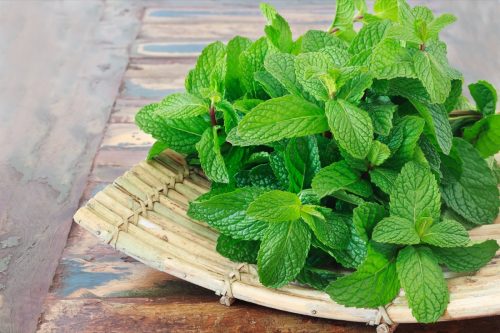
Mint is a rapidly spreading plant that repels raccoons with its strong smell. Clayton suggests planting it near your garbage cans to stop raccoons from rummaging for food.
Mint, especially peppermint, also masks other smells that raccoons might like. Since they’re nocturnal and hunt for food when it’s dark, they can’t necessarily see what they’re eating, which is why scent is so important.
RELATED: 5 Plants That Will Keep Mosquitoes Out of Your Yard, According to Pest Experts.
5. Rose bushes

Like globe thistles, rose bushes are pointy and unattractive to raccoons. “Raccoons are reluctant to tread through thorny plants, so they avoid contact with them whenever possible,” says Kantor.
They also have a very strong scent which raccoons are averse to, so it’s recommended to plant a lot of rose bushes wherever you have a pest problem.
For more pest tips sent directly to your inbox, sign up for our daily newsletter.
6. Lavender
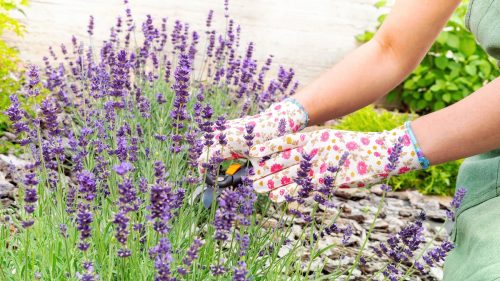
In addition to being repellent to deer and snakes, the strong scent of lavender is also a deterrent for raccoons. However, it’s important to note that while these plants may be less appealing to raccoons, they are not 100 percent foolproof.
“Raccoons are opportunistic and adaptable, so using other methods like fencing, motion-activated lights, and securing food sources is essential for comprehensive raccoon control in your yard,” says Dilmore. Another option is using motion sensor sprinklers because these animals hate getting wet.